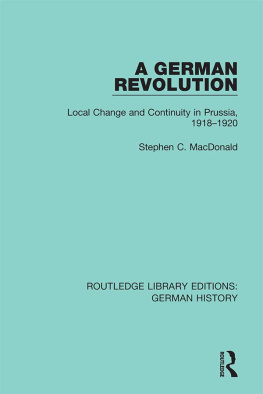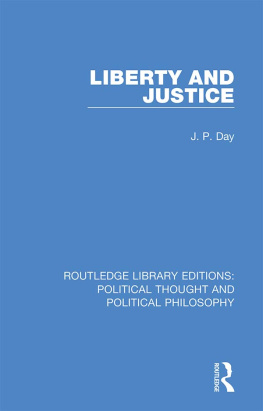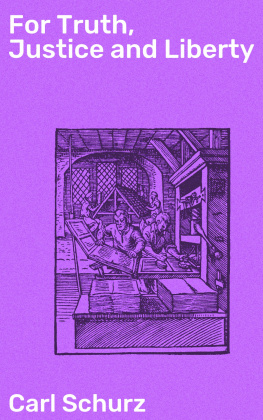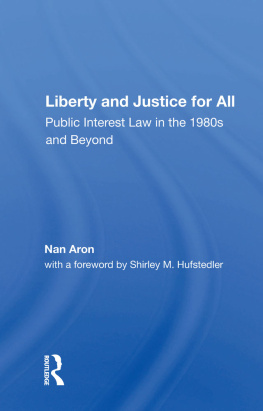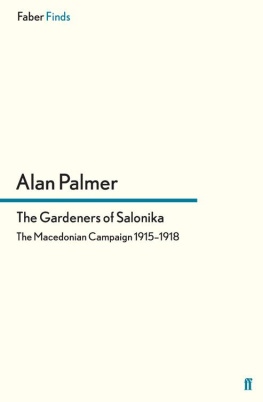Nick Shepley - The Palmer Raids and the Red Scare: 1918-1920: Justice and Liberty for All
Here you can read online Nick Shepley - The Palmer Raids and the Red Scare: 1918-1920: Justice and Liberty for All full text of the book (entire story) in english for free. Download pdf and epub, get meaning, cover and reviews about this ebook. year: 2015, publisher: Auk Academic, genre: Politics. Description of the work, (preface) as well as reviews are available. Best literature library LitArk.com created for fans of good reading and offers a wide selection of genres:
Romance novel
Science fiction
Adventure
Detective
Science
History
Home and family
Prose
Art
Politics
Computer
Non-fiction
Religion
Business
Children
Humor
Choose a favorite category and find really read worthwhile books. Enjoy immersion in the world of imagination, feel the emotions of the characters or learn something new for yourself, make an fascinating discovery.

- Book:The Palmer Raids and the Red Scare: 1918-1920: Justice and Liberty for All
- Author:
- Publisher:Auk Academic
- Genre:
- Year:2015
- Rating:3 / 5
- Favourites:Add to favourites
- Your mark:
- 60
- 1
- 2
- 3
- 4
- 5
The Palmer Raids and the Red Scare: 1918-1920: Justice and Liberty for All: summary, description and annotation
We offer to read an annotation, description, summary or preface (depends on what the author of the book "The Palmer Raids and the Red Scare: 1918-1920: Justice and Liberty for All" wrote himself). If you haven't found the necessary information about the book — write in the comments, we will try to find it.
The Palmer Raids and the Red Scare: 1918-1920: Justice and Liberty for All — read online for free the complete book (whole text) full work
Below is the text of the book, divided by pages. System saving the place of the last page read, allows you to conveniently read the book "The Palmer Raids and the Red Scare: 1918-1920: Justice and Liberty for All" online for free, without having to search again every time where you left off. Put a bookmark, and you can go to the page where you finished reading at any time.
Font size:
Interval:
Bookmark:
Title Page
THE PALMER RAIDS AND THE RED SCARE 1918 - 1920
WILSON, PALMER AND THE BREAKING OF AMERICAN SOCIALISM
By
Nick Shepley
Publisher Information
The Palmer Raids and the Red Scare 1918 - 1920
Published in 2011 by
Andrews UK Limited
www.andrewsuk.com
This book is sold subject to the condition that it shall not, by way of trade or otherwise, be lent, resold, hired out or otherwise circulated without the publishers prior written consent in any form of binding or cover other than that in which it is published, and without a similar condition being imposed on the subsequent purchaser.
The characters and situations in this book are entirely imaginary and bear no relation to any real person or actual happening.
Copyright Nick Shepley
The right of Nick Shepley to be identified as author of this book has been asserted in accordance with section 77 and 78 of the Copyrights Designs and Patents Act 1988.
The Red Scare 1919-1920
To an isolationist USA the changes in the world that seemed to have erupted forth from the First World War must have been frightening and bewildering. This is how many people interpret the US Red Scare immediately after the war, but there is a problem with this picture. Anti-Communism, anti-union activity and nothing short of an all-out war against the organised left had been a constant feature of life in America in the previous half century. The attack on the left after the war was nothing new, except for its intensity and seeming urgency, though the impetus for anti-leftist policies seemed to come not as before from private enterprise but from the Federal government itself. The experience of the Russian Revolution and the wave of other less successful communist insurrections across Europe presented America was a radically changed political environment; the USA after world war one had become involved in the attempt to crush the Bolshevik revolution in its infancy and it was often communists and socialists from Russia, Greece, Italy, Poland and other non-Anglo Saxon countries who had emigrated to the USA who were considered most suspect, which suggests to us the possibility that the red scare was more a panic over immigration than it was related to real anxieties about Communism. It could be said, however, that the Cold War actually began in 1918, the hate, fear and suspicion of Communism, and foreign ventures to crush it wherever it manifested itself were both as intense in 1918 as they were in 1950.
Leon Trotsky Comes To America
Leon Trotsky, along with the rest of the Bolshevik Party was completely taken by surprise by the February Revolution in 1917. An indication of how surprised he was was the fact that he was stuck in New York when it broke out. Vladimir Lenin had given a rather mournful speech in Switzerland a fee weeks beforehand to younger revolutionaries, stating that he and his generation would most likely not see the revolution, but it was essential for the next generation to keep up the fight. When the revolution occurred Trotsky and others were in a mad scramble to get home. Trotsky and his long suffering second family had been deported from Paris where he had been living throughout the war as an undesirable, and then set up home in Spain. When the Spanish too got rid of him America was the next port of call. It is an indication of how liberal and perhaps how lax the entry requirements for the USA were, that Trotsky got in at all. A member of a Marxist revolutionary organisation who had been thrown out of two countries already; why did America agree to take him?
Perhaps it is something to do with the on-going struggle for Americas soul throughout 1917. The Creel Commission, Wilsons war propaganda think tank was busy trying to whip America into a war frenzy, and gradually meeting with greater and greater success. The commission, however, was unable to achieve full success until the Kaisers resumption of unrestricted submarine warfare. Once that had resumed, Wilson had all the arguments he needed to engage the USA in the war, with a resulting crackdown on anti-war sentiment. There was enough scepticism towards the war, and outright hostility from German and Irish Americans to make New York a relatively safe destination for someone like Trotsky, whos reputation in European radical circles was well established, and who would have been equally well known in American migr and left wing discourse. In New York itself a lively and sophisticated left wing radical culture existed. Much of it had been imported to America by Russian and Polish Jews who had fled the cruelties of the Czarist system from the 1890s onwards, the Jews of the Bund Party in Russia had been one of the Empires first mass membership revolutionary parties. Newspapers in both Yiddish and English were available on the streets of New York, Boston and Philadelphia was Marxist and Anarchist perspectives. Trotsky, who did not speak a word of English, still found a ready and waiting audience for him in New York, he spoke to packed halls of Russian migrs who were finding their new adopted motherland often less abundant with both liberty and wealth than they had been led to expect.
Trotsky was greeted with no small amount of fanfare when he and his wife disembarked. The migr left embraced their celebrity speaker and he wrote for the Jewish left wing paper Foverts (Forward), reprising his chosen career as a journalist. He addressed packed meeting houses on the subject of the war, New York had a greater number of distressed Europeans than normal in 1917 with huge numbers having fled war and despair on the continent. The cruise liner that Trotsky and family had charted across the Atlantic had been full of despairing lost Europeans hoping for a new future elsewhere. The fact that so many had made it to New York gave Trotsky a great audience to orate to on the subject of the war.
Trotsky began to find, however, that the tide of public opinion was shifting against him in America. When the Zimmerman telegram was revealed, and in it the offer by the German Government to grant New Mexico and California to Mexico if she joined a war with Germany against the USA, a declaration of was swiftly followed. Abraham Cahan, editor of Foverts supported the US policy of war, declaring it legitimate that Wilson should react in this way towards Germany.
Trotsky was angered by this and said that it was utterly wrong that the editor of a radical newspaper should be giving any kind of legitimacy at all to an imperialist war. He likened the attempt to the legitimacy given to the Kaisers government in 1914 by the German Social Democrats. Instead, he argued, all socialists should work for an end to the war and for an end to the capitalist powers that fuelled wars, and therefore an end to all wars.
Trotsky parted company with Forverts, but he never really became more well known in the wider world of American Anglo Saxon socialism, he remained in a subculture of none English speaking radicals. The fact that it was a world that was largely impenetrable to none Russian speakers, and the fact that the Russian Marxist emigre community had its Italian, Polish, Greek and Serbian counterparts, to name but a few, singled this world out as a subculture that it was easy to be suspicious and fearful of. When even other socialists from the mainstream American left knew nothing of these factions and parties and publications it was hard to see how eventual persecution of the left in America after the war could be avoidable.
The fact that Trotsky was writing in a radical underground paper that was written in Russian also made it very easy to avoid censorship, the authorities were naturally very suspicious about what was being written in these periodicals. There was a fierce reaction to anti-war sedition and a deep suspicion of radicalism related to the war with the draconian Espionage and Sedition Acts being pushed through Congress in 1917 and 1918 respectively. Socialists who were pro war, as much of the European democratic left had been in 1914 were embraced by Wilson, and Trotsky left America of his own volition probably before he was deported.
Next pageFont size:
Interval:
Bookmark:
Similar books «The Palmer Raids and the Red Scare: 1918-1920: Justice and Liberty for All»
Look at similar books to The Palmer Raids and the Red Scare: 1918-1920: Justice and Liberty for All. We have selected literature similar in name and meaning in the hope of providing readers with more options to find new, interesting, not yet read works.
Discussion, reviews of the book The Palmer Raids and the Red Scare: 1918-1920: Justice and Liberty for All and just readers' own opinions. Leave your comments, write what you think about the work, its meaning or the main characters. Specify what exactly you liked and what you didn't like, and why you think so.

